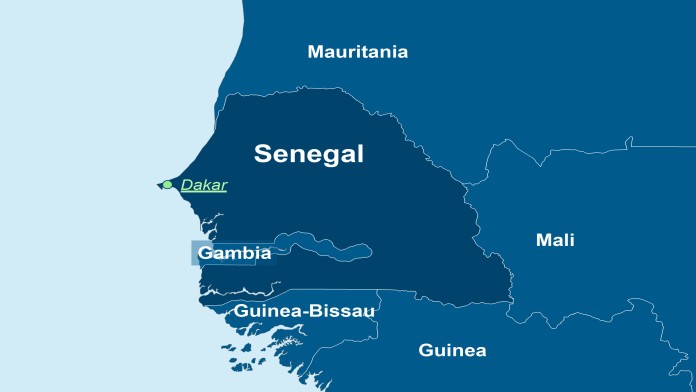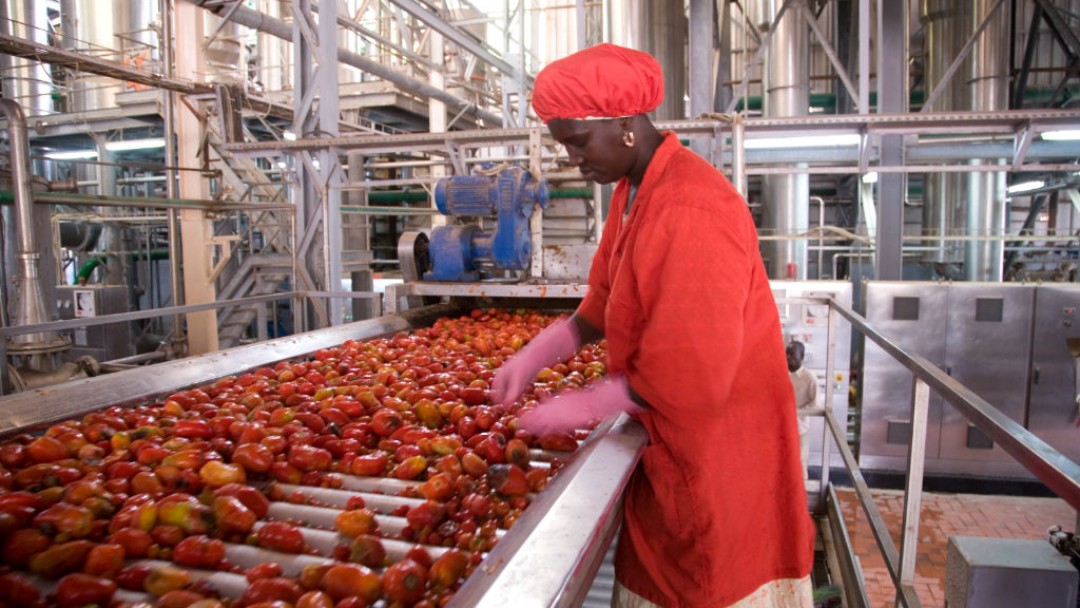
As of: 04/2024
The government of Senegal has undertaken ambitious reforms to strengthen the economy. However, the state budget needs support to implement this agenda. The Russian war in Ukraine is also putting pressure on the economy here. At the same time, the effects of climate change are becoming increasingly apparent. Commissioned by the German Federal Government, KfW is financing a project aimed at strengthening the resilience of the government and companies to external crises and promoting adjustment to climate change. KfW is initially providing EUR 68 million for the Senegalese state budget, with a further EUR 55 million being audited. The disbursement of funds is linked to the implementation of reform steps agreed by the German and Senegalese governments.
Resilience refers to the resilience of structures, such as the economy or the state. In Senegal, this resilience is not yet very pronounced. This is evidenced by the fact that the global crisis-like developments of recent years have strongly influenced the development of this West African country. First, gross domestic product growth fell to just 1.3% during the pandemic. When Senegal was just getting over this economic slump, Russia invaded Ukraine, resulting in many products becoming more expensive on the world market. In Senegal, this was reflected in rising prices for fuel, energy and foodstuffs such as wheat. In addition, the last harvest in the country was poor. As a result of climate change, extreme weather events such as flood disasters and droughts are on the increase. The impact of these crises has been made all the more intense as Senegal's current structures for mitigating their impact are weak. This is true of both the state as well as private companies and families.

The government of Senegal has resolved to carry out extensive reform. However, implementation requires funds that the state alone cannot raise. To this end, commissioned by the Federal Ministry for Economic Cooperation and Development (BMZ), KfW is initially providing EUR 68 million, with a further EUR 55 million potentially in the pipeline. For an appropriate response to crises, it is important that the state has financial leeway and can support both the economy and the population.
The funds will serve to implement individual reform steps that the two governments have agreed in advance. These reforms relate to three areas:
In addition, gender equality is anchored in the project as part of the feminist development cooperation as an overarching topic. In this case, resilience means building structures that are better prepared for crises. In the area of public finances, this means the ability to spend efficiently while increasing government revenue. This includes, for example, the reform of public procurement, improved measures against money laundering and terrorism financing, and the promotion of women in the public sector.
The project supports a Senegalese strategy for the promotion of the private sector and the economic independence of women. A study aims to find out how companies in financial difficulties can be better supported, with the ultimate aim being for private companies to be more resilient in dealing with crises and to recover more quickly from them.
To adapt to climate change, an evaluation and monitoring system is to be set up to measure and better anticipate impacts. This database will in turn be used in the implementation of adaptation measures. A strategy to achieve national contributions to the Paris Agreement goals is to be adopted.
The project is benefitting the entire population of Senegal, as the public and private sector structures are better protected against external shocks and crises.
Special support measures benefit women and increase their participation in society. This is an important contribution to the development of society as a whole, as when women unlock their financial potential, poverty is reduced and the economy grows.
The instrument of reform financing is particularly suitable for promoting political reforms in the partner country and thereby significantly improving the national framework conditions for sustainable development. The targeted promotion of legislative, regulatory and institutional reforms enables systemic changes to take place, which is why reform financing is an effective instrument for the development cooperation.
The project contributes to the achievement of these following United Nations Sustainable Development Goals:
KfW Group
KfW Development Bank
KfW Office Dakar
Share page
To share the content of this page with your network, click on one of the icons below.
Note on data protection: When you share content, your personal data is transferred to the selected network.
Data protection
Alternatively, you can also copy the short link: https://www.kfw-entwicklungsbank.de/s/enzBzD3b
Copy link Link copied